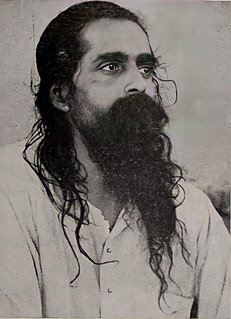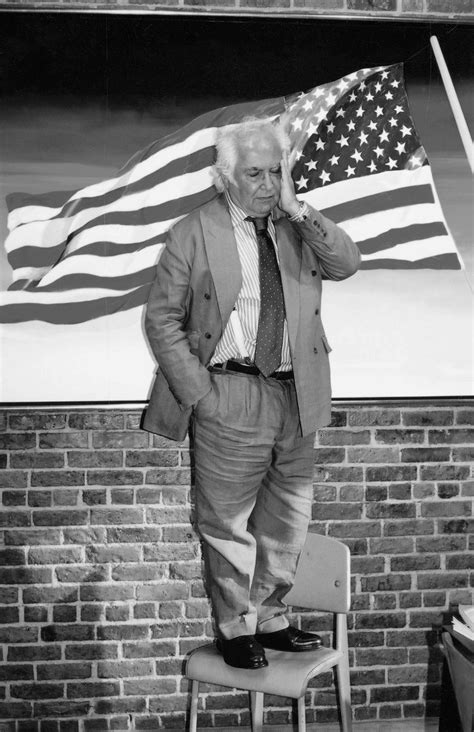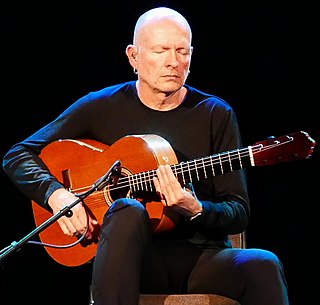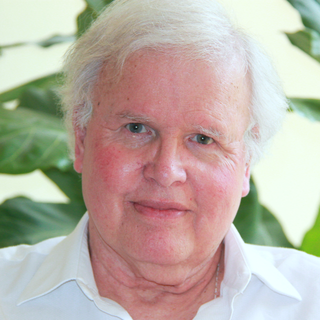Top 1200 Culture Quotes & Sayings - Page 20
Explore popular Culture quotes.
Last updated on December 23, 2024.
London is the most multicultural, mixed race place on Earth. And I love that. I grew up in a neighborhood in London where English wasn't necessarily the first language - maybe because of that, I love to travel. Every penny I've ever saved has been spent on airline tickets to different corners of the world. I think that's partly from growing up in London. I've taken that bit with me - this ability to fit in with any culture and be fascinated and respectful with any culture all started from growing up in London.
I think this kind of bohemianism doesn't really exist in the New York city anymore - the bohemianism that I was trying to record in Carnegie Hall that completely defined our culture. The people who lived and worked in Carnegie Hall studios, they defined our culture in music, dance, theater, fashion, illustration. It wasn't so much nostalgic as a celebration of that and an acknowledgment of that and saying that it's really important. And it's actually something that is a loss for the city, I think.
Another factor is the education and culture in which you grow up. I didn't grow up in the culture of victory, where you are expected to be or have to be, the best. It was not at all like that in my family. Tennis was really a hobby. If it led to something, great. If not, there were other things in life. I think that was something I was missing at some points in my career, because when I see Hingis or the Williamses, you see how they were educated for this: to win, to be the best, a bit the American mentality. Number one. Number one. Number one. I didn't have this.
I see people getting so caught up in celebrating diversity that they are neglecting their commonality. I don't see this as a good thing. The Chinese culture has survived for more than five thousand years in part because the Chinese have embraced the same language and culture. I hope I am wrong about this, and that the flame is still on beneath the great American melting pot. Americans need each other, and a house divided, no matter the color of its occupants, is still divided. And divided we all fall.
There is a resentment and rejection of liberal culture. That culture is not available to many people in America. And the liberal coastal elite, who may never have been to rural America, just think everyone there is racist and homophobic and judge them to be terrible people. They think there is nothing wrong to be making jokes about 'meth heads', who are actually a group of people with poverty-related drug issues. They don't see their own hypocrisy. I think this is a huge issue and one that cannot be ignored.
Secretly in my heart, I believe food is a doorway to almost every dimension of our existence. ... Food never was just food. From the time a cave person first came out from under a rock, food has been a little bit of everything: who we are spiritually as well as what keeps us alive. It's a gathering place, and in the best of all worlds it's possible that when people of one country sit down to eat another culture's food it will open their minds to the culture itself. Food is a doorway to understanding, and it can be as profound or as facile as you would like it to be.
The coarsening of our culture towards violent death has more consequences than war. Tragically, this same culture has led to the death of 50 million unborn children in the last 40 years. I don't think a civilization can long endure that does not have respect for all human life, born and not yet born. I believe there will come a time when we are all judged on whether or not we took a stand in defense of all life from the moment of conception until our last natural breath.
There is no "true Islam," just different interpretations. Since I brought up patriarchy, let me make one thing clear. I am not singling out men; I am addressing the issue of inequality of genders. A patriarchy does not only not accept the equality of the sexes, it also has a hard time understanding the principles of democracy and its essence. Women are the victims of this patriarchal culture, but they are also its carriers. Let us keep in mind that every oppressive man was raised in the confines of his mother's home. This is the culture we need to resist and fight.
Language both reflects and shapes society. Culture shapes language and then language shapes culture. Little wonder that the words we use to talk to each other, and about each other, are the most important words in our language: they tell us who I am, they tell us who you are, they tell us who 'they' are.
The changes that we can make in the culture can be there for people that we will never meet, that will never know us, and that's what keeps me up at night. It's what excites me about science, that we can learn ways of being with each other. And the behavioral sciences have not been enough of a part of cultural development. The physical sciences have; the behavioral sciences have not. And I would like to see if we can bring some things into human culture that would humanize and soften and empower people.
Barack Obama didn't say "I only want to be the President of Black people," he said "I want to be the President of the United States and have something to say about the United States and my perspective and my lens is going to affect my judgment on everything" and that's the way a Christian should be. I'm going to invade culture and my lens and perspective is going to influence culture just as much as anyone else's.
World War II vets in general didn't talk about their experiences. They believed there was something better and that they were going to prove to America what they could be and show America what it could be by being the change that they wanted. Like that Ghandi phrase "be the change that you want to see" but I think that it was also just a different culture. People didn't want to complain, whereas today if you go to the Starbucks and they mess up your order you might tweet about it. You know it's a different kind of culture.
While we have a very strong popular culture, the roots of American culture are very shallow, and we put emphasis on how a movie does as far as the box office goes. Many years ago, it would have been vulgar to print box - office grosses in the paper. Now The New York Times does it, and it's the big story for people interested in arts and entertainment on Monday. Which is why emphasis has shifted away from filmmakers and fallen on movie stars and business people.
As Colin Wilson has written, "modern civilisation, with its mechanised rigidity is producing more outsiders than ever before-people who are too intelligent to do some repetitive job, but not intelligent enough to make their own terms with society." Those "intelligent enough" to make their own terms with society are what we will later refer to as artists of life. The outsider views himself as a product of a culture he rejects-the artist views himself as a culture-builder.
I would say my being disheartened has more to do with American culture than anything else. We are becoming a very shallow culture. My goodness, the celebrity ethos has taken over completely. Turn on the television and you see that over and over. There's very little substance. And so, everything gets shorter. Everything is entertainment oriented. Our churches reflect that. A thirty-five minute sermon without a Power Point or video clips is rare these days. That's not true in other countries so much.
The information that was contained in a cathedral was based upon a common culture - a common Christian culture - and the elements were chosen for a common symbolic meaning. Someone who knew everything that was represented in a cathedral had a sort of encyclopedia - you can indeed call it that - but it was a selective encyclopedia, like encyclopedias back when they were books and the people writing them were supposed to be specialists in their field. I think today the problem is that people don't know how to choose between different kinds of information.
One of the challenges is to create an equally positive, satisfying sense of femininity and feminine identity in a different way so that there are things you're saying yes to and satisfying that urge that your daughter has to be assert her girlness. The surface level of the culture, and really several inches into it, makes that very hard to do. I hate to put another thing on parents' plates. But the culture is very intentional in what it's telling your daughter and what it's telling you about the message of femininity. And if you're not intentional and conscious back, you lose.
in order to confer their lost Nationality upon exiled Jews , the British with the help of the League of Nations began to rehabilitate the old Hebrew country, Palestine, with its long lost children. The Jews had maintained their race, religion, culture and language; and all they wanted was their natural territory to complete their Nationality. The reconstruction of the Hebrew Nation on Palestine is just an affirmation of the fact that Country, Race, Religion, Culture and Language must exist unequivocally together to form the Nation idea.
What a shame that Christianity had come here!If the white man had not intruded where he was not wanted, where he did not belong, even now protected by the mountains and the river,the village would have remained a last stronghold of a culture which was almost gone.Mark tried to say that no village,no culture can remain static. I have often thought that if this lively and magnificent land belongs to anyone,it's to the birds and the fish.They were here long before the first Indian and when the last man is gone from the Earth,it will be theirs again.
The "female culture" has shifted more rapidly than the "male culture"; the image of the go-get 'em woman has yet to be fully matched by the image of the let's take-care-of-the-kids- together man. More important, over the last thirty years, men's underlying feelings about taking responsibility at home have changed much less than women's feelings have changed about forging some kind of identity at work.
I moved here when I was 20 to go to college. After I moved here, I became much more aware of the importance of the culture and literature to my life. Sometimes when you're immersed in something, you just don't notice it very much. Moving away makes you appreciate your culture. Living here, I've thought more and more about India, and what being Indian-American means to me. And it's made me incorporate things from Indian literature into my own writing.
There is no way they should walk out of that place [Wells Fargo] with millions, tens of millions, tens and tens of millions of dollars, when innocent people who actually flagged this culture of conceit and culture of rip off should've been fired while the people who were doing it somehow are able to just resign and reap the big reward. It's just an outrage. It's people who have forgotten decent values towards other people.
I don't think there is ever a direct connection between the philosophical community and the wider populus. I'm very aware of this because I've been working on a book on ideas in global philosophy and you always find some kind of relation between the dominant philosophies in a culture and the folk philosophy but it's not a straight-down dissemination. It's partly bottom-up. Thinkers are the products of the cultures they grew-up in. They aspire to thinking purely objectively and universally, but they are often reflecting ways of thought that are embedded in a culture.
For me, being Christian Armenian, born into the Islamic culture in Iran and then, at the age of 13, being sent to England and embracing the English culture and becoming part of so-called swinging London and the era of euphoria and celebration that the '60s represented is very critical. It was a moment when, for the first time, the business of internationalism was being effectively represented-in music, art, cinema, design. Before that, everything was directed toward the old industry, the old school, the old format, and there was no room for varieties to evolve.
We know – it has been measured in many experiments – that children with strong impulse control grow to be better adjusted, more dependable, achieve higher grades in school and college and have more success in their careers than others. Success depends on the ability to delay gratification, which is precisely what a consumerist culture undermines. At every stage, the emphasis is on the instant gratification of instinct. In the words of the pop group Queen, “I want it all and I want it now.” A whole culture is being infantilised.
An empirical philosophy is in any case a kind of intellectual disrobing. We cannot permanently divest ourselves of the intellectual habits we take on and wear when we assimilate the culture of our own time and place. But intelligent furthering of culture demands that we take some of them off, that we inspect them critically to see what they are made of and what wearing them does to us. We cannot achieve recovery of primitive naïveté. But there is attainable a cultivated naïveté of eye, ear and thought.
We both [with Jo Andres] think that it is really important to our culture that we support all kinds of music, all kinds of theatre and all kinds of art because you never know what moves people. We've always believed that there should be a strong voice outside the commercial world. Certainly, the commercial world has a huge place in our culture and we also support that - but, we also want to support the stuff that lives outside of that.
The meaning of secrecy is very different when the model of love is one of transparency. So to understand the politics of secrecy and revelation, you need to understand the larger culture in which the couple lives and also the culture of the couple itself. What does intimacy mean to them? Where does the couple draw the line between togetherness and separateness? That's what informs you. You always ask, "What would happen if I tell? What would happen if I don't tell?" Sometimes, the partner doesn't want to know.
Well, when you're an immigrant writer, or an immigrant, you're not always welcome to this country unless you're the right immigrant. If you have a Mexican accent, people look at you like, you know, where do you come from and why don't you go back to where you came from? So, even though I was born in the United States, I never felt at home in the United States. I never felt at home until I moved to the Southwest, where, you know, there's a mix of my culture with the U.S. culture, and that was why I lived in Texas for 25 years.
All cultures have things to learn from all other cultures. Don't get stuck in your culture! Go beyond it! Get out of your aquarium; get out of your farm; get out of your castle; break your bell jar! Give chance to other cultures and to other opinions! This is the best way for you to see the insufficiencies, absurdities and stupidities in your culture!
In terms of getting people to experiment more and take more risk, there are at least three things that immediately come to my mind. Number one, of course, is role-modeling it yourself. Number two is when people take intelligent, smart risks and yet it doesn't work out, not shooting them. And number three, being honest with yourself. If the culture you have is radically different from an experiment and take-risk culture, then you have a big change you going to have to make—and no little gimmicks are going to do it for you.
A beautiful woman in our culture, and I would like to say, you know, this was different in 1962, but it still exists today - I know a lot of these women -treats different in a different way; meaning that if you're a beautiful woman, you're incredibly powerful within our culture. The world operates differently for you. Then, at a moment in time, and it has nothing to do with you, it's like the carpet is just ripped out from under you, and the way that you've operated in the world no longer works.
Whereas if you're a reader, you can enter other people's minds, you can be in direct contact with people who may have lived hundreds or thousands of years ago. You can know what's like to be old if you're young or young if you're old. You can know what it's like to live in a completely different culture and really enter somebody else's mind. There's no amount of historical information that can give you access to the consciousness of a person from another culture or from the past in the way that reading really good novel from that place or time can.
You grow the fastest by getting... adopting ideas and technologies from other cultures. And that has been proven in history, time and time again. Whether you go back to the ancient Persians, or the Romans, or the Ottomans. It's how a culture grows, by incorporating other ideas and going, wow, how did they do this? Oh, I bet you this works with this, and then you can improve it again. So I think any culture that sort of says, no no no, it's just us, nobody gets in anymore, it's the beginning of atrophy, and the rest of the world will just pass you.
Those who are guilty of the argumentum ad ignorantiam profess belief in something because its opposite cannot be proved ... In the realm where "prejudice" is now most an issue, it normally takes a form like this: you cannot prove by the method of statistics and quantitative measurement that men are not equal. Therefore all men are equal. ... You cannot prove again by the methods of science that one culture is higher than another. Therefore the culture of the Digger Indians is just a good as that of Muncie, Indiana, or thirteenth-century France.
You asked if I thought my fiction had changed anything in the culture and the answer is no. Sure, there's been some scandal, but people are scandalized all the time; it's a way of life for them. It doesn't mean a thing. If you ask if I want my fiction to change anything in the culture, the answer is still no. What I want is to possess my readers while they are reading my book ? if I can, to possess them in ways that other writers don't. Then let them return, just as they were, to a world where everybody else is working to change, persuade, tempt, and control them.
The success [of the X-Men], I think, is for two reasons. The first is that, creatively, the book was close to perfect ... but the other reason is that it was a book about being different in a culture where, for the first time in the West, being different wasn't just accepted, but was also fashionable. I don't think it's a coincidence that gay rights, black rights, the empowerment of women and political correctness all happened over those twenty years and a book about outsiders trying to be accepted was almost the poster-boy for this era in American culture.
Don't lie to anyone, but particularly don't lie to millennials. They just know. They can smell it. Be yourself: if you're old, be old. If you don't know anything about pop culture, don't pretend to know anything about pop culture. When you credit teenagers with intelligence and emotional sophistication, they respond intelligently and with emotional sophistication.
I’m not doing anything wrong, I’m not obstructing anyone’s access. When I have a crowd I make sure that the crowd makes room for people. I’m an artist who cares about the cultural fabric of New York City. I care about New York as a harbor for street culture - and I care about street culture as a base-level populist diffusion of ideas. And I believe in making those ideas accessible to everyone.
I arrived in San Francisco in January 1951. After the Second World War, the population was so uprooted. Soldiers came back home for brief periods and took off again. So the population was very fluid, and suddenly it was as if the continent tilted west. The whole population slid west. It took 10 years for America to coalesce into a new culture. And the new culture happened in San Francisco, not New York.
Once efficiency is universally accepted as a rule, it becomes an inner compulsion and weighs like a sense of sin, simply because no one can ever be efficient enough, just as no one can ever be virtuous enough. And this new sense of sin only contributes further to the enervation of leisure, for the rich as well as the poor. The difficulty of carrying on a leisure-oriented tradition of culture in a work-oriented society is enough in itself to keep the present crisis in our culture unresolved.
If diphtheria is a disease caused by a microorganism, it is essential that three postulates be fulfilled. The fulfilment of these postulates is necessary in order to demonstrate strictly the parasitic nature of a disease:
1) The organism must be shown to be constantly present in characteristic form and arrangement in the diseased tissue.
2) The organism which, from its behaviour appears to be responsible for the disease, must be isolated and grown in pure culture.
3) The pure culture must be shown to induce the disease experimentally.
An early statement of Koch's postulates.
At the present moment in our culture this yearning for meaning and consciousness, this yearning to give and serve something higher than ourselves, is breaking through the hard crust of our widespread cultural materialism and pseudo-scientific underestimation of what a human being is meant to be together with an equally tragic overestimation of what we human beings are capable of in our present everyday state of being. The intensity of the present confusion about the nature and existence of God is a symptom of this yearning within the whole of our modern culture.
Nowadays it's a big issue in Europe because you are forced to describe yourself by your culture, and you begin to forget about yourself, your identity. You're supposed to act in certain ways. You're limited. When you try to go outside the lines to go into some other garden, then you're blamed and stoned because it's like blasphemy. When we talk about culture, we have to see those two sides to it. When we ignore it, it's dangerous. When we talk about it too much, it's also dangerous. We have to have a moderate balance.
If I were to critique myself - step out of KRS objectively and look at him - I would say that KRS has introduced the concept of being hip-hop, not just doing it. The concept of rap as something we do, while hip-hop is something we live. The concept of living a culture. Don't just look at hip-hop as rap music, see it as a culture.
Our whole goal is really to create a culture of accountability. Because for a very long time, ending sexual assault has been on the backs of survivors. And it's really up to everyone to be part of the solution. It's really about not creating a culture of awareness. It's something I often tell parents of kids who are going off to college: It's about asking those hard questions when your kids are applying to school and encouraging them to ask about their rights, to ask about their resources.
I think that hip-hop should be spelled with a capital "H," and as one word. It's the name of our black people culture, and it's the name of our identity and consciousness. I think hip-hop is not a product, but a culture. I think rap is a product, but when hip-hop becomes a product, that's slavery, because you're talking about people's souls. To me, that's the biggest problem.
I don't really identify with America, I don't really feel like an American or part of the American experience, and I don't really feel like a member of the human race, to tell you the truth. I know I am, but I really don't. All the definitions are there, but I don't really feel a part of it. I think I have found a detached point of view, an ideal emotional detachment from the American experience and culture and the human experience and culture and human choices.
The whole point is to take from our native culture and from contemporary culture without using one art form to mimic the other, so that our native identity remains the native identity, the contemporary identity remains the contemporary identity, and the mixing of these two musical identities creates a third musical identity.
Once a new social stage appears in a culture, it will spread its instructional codes and life-priority messages throughout that culture's surface-level expressions: religion, economic and political arrangements, psychological and anthro-pological theories, and views of human nature, our future destiny, globalization, and even architectural patterns and sports preferences. We all live in flow states; there is always new wine, always old wineskins. We, indeed, find ourselves pursuing a neverending quest.
The only thing I knew in the world as a little kid was comedy. And no other kids in my school cared about it at all. There was no one to talk about it with. You know, we're in a geek culture now where comedy is so giant. I'm one of the people that, you know, works on Funny or Die. And there is just a giant culture of comedy nerds. But back then, I was alone, and I had a little confidence about it because I felt like, this is my thing, this is the only thing that only I know about.
I was lucky enough to have had great success early on in life; to have had all the things the material world can offer. And yet, I realized that what I had actually neglected was the more spiritual side of myself, which has always been there. But it's easy for us in our culture to become consumed in a sense by materialism. Now materialism is fine. We live in a material world. I'm not saying that beautiful things don't enhance our lives. But, in our culture, we're never happy.
We were land-based agrarian people from Africa. We were uprooted from Africa, and we spent 200 years developing our culture as black Americans. And then we left the South. We uprooted ourselves and attempted to transplant this culture to the pavements of the industrialized North. And it was a transplant that did not take. I think if we had stayed in the South, we would have been a stronger people. And because the connection between the South of the 20's, 30's and 40's has been broken, it's very difficult to understand who we are.

























































